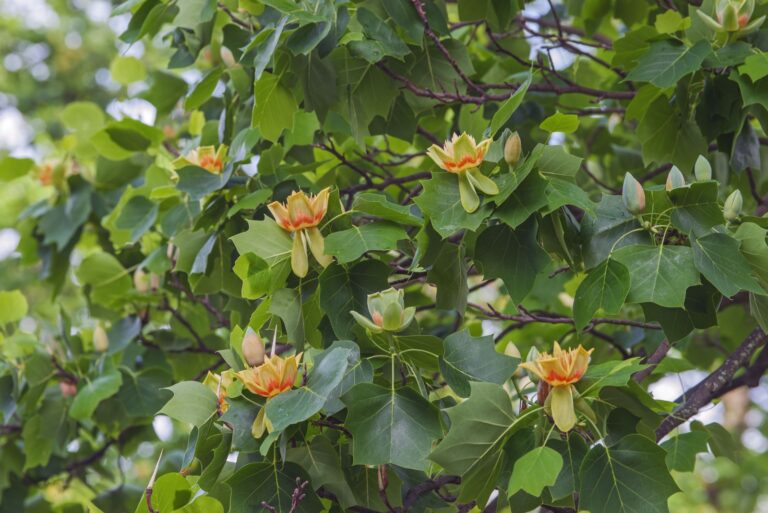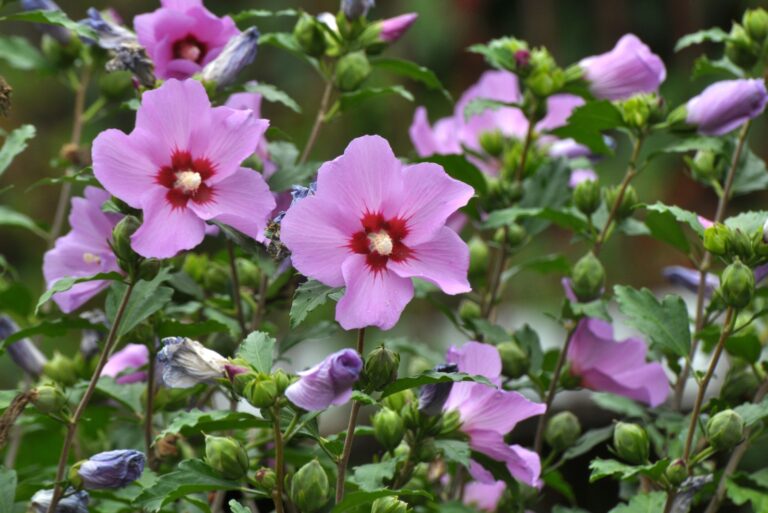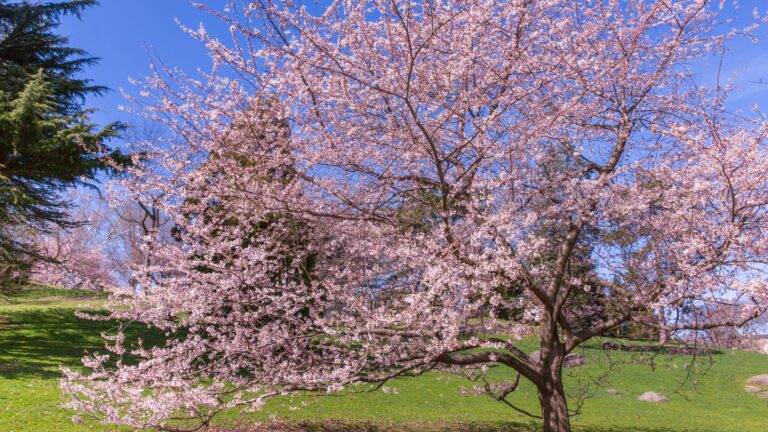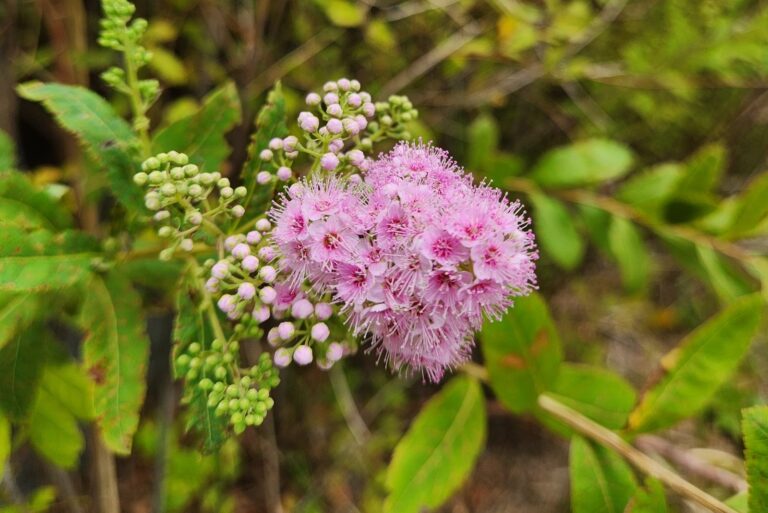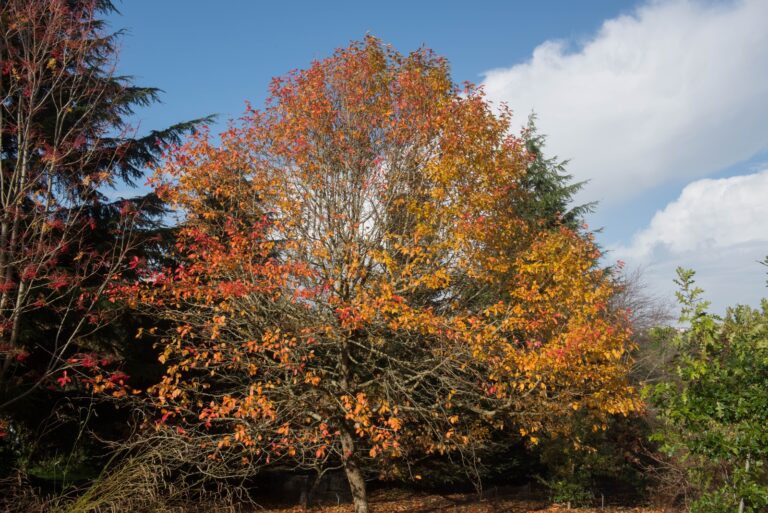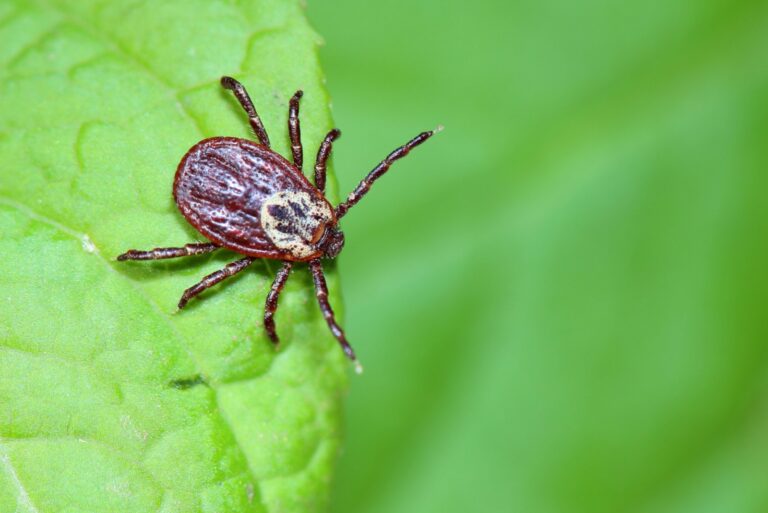Trees That Shouldn’t Be Planted Near Driveways In Georgia (And What To Grow Instead)
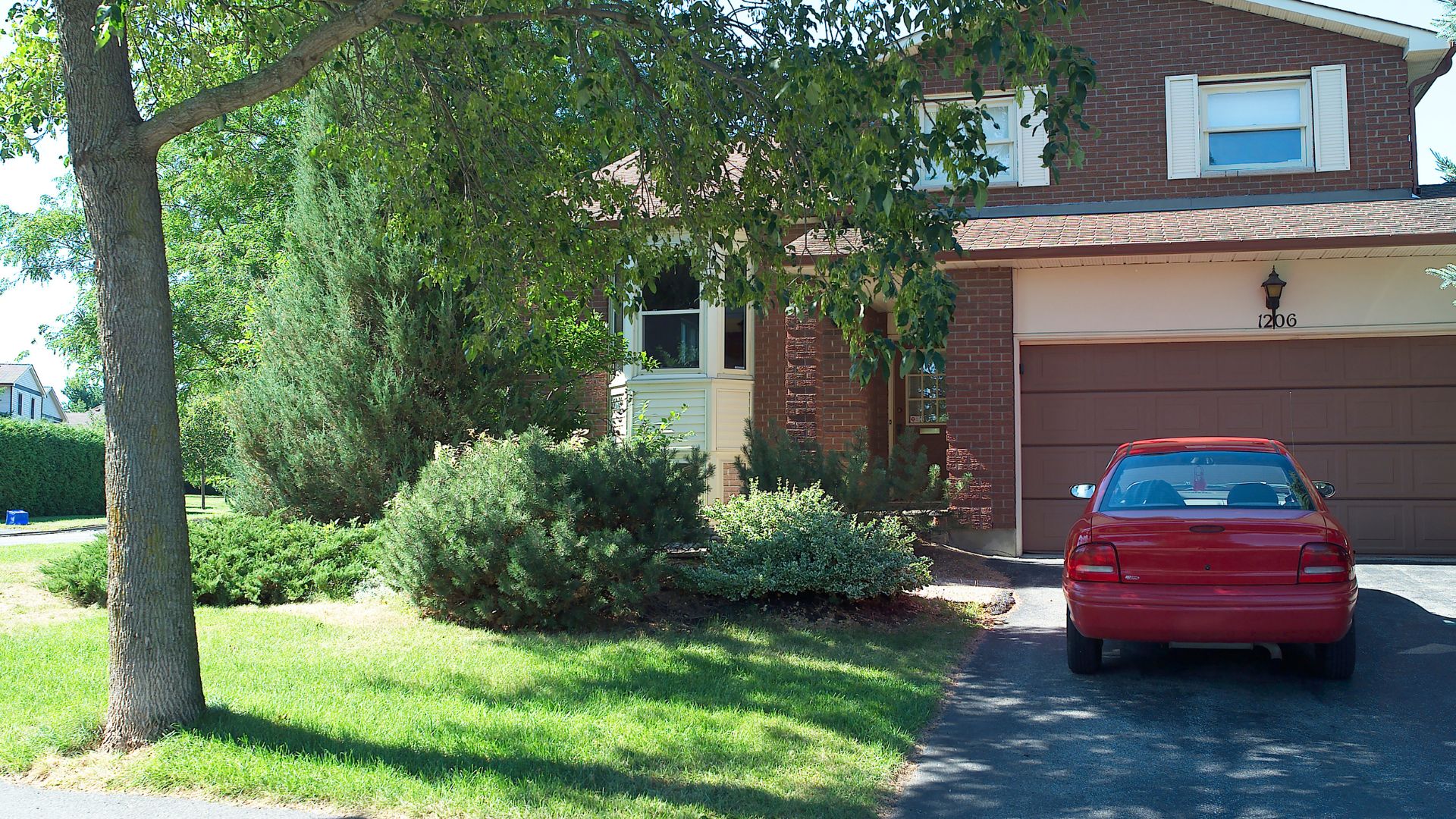
Choosing the right trees for your Georgia property can make or break your driveway’s longevity. I’ve learned through years of gardening in Georgia’s unique climate that some trees are simply driveway destroyers—causing cracks with aggressive roots, creating slip hazards with fallen fruit, or requiring constant cleanup that nobody has time for.
Our red clay soil and humid conditions create specific challenges when trees are planted too close to hard surfaces. What might work in other states often becomes a headache here in Georgia, leading to expensive repairs and frustration.
After helping neighbors deal with driveway damage and clearing countless seedpods from my own property, I’ve compiled this practical guide to trees you should avoid placing near your driveway—and better alternatives that will beautify your property without the hassle.
1. Southern Magnolia
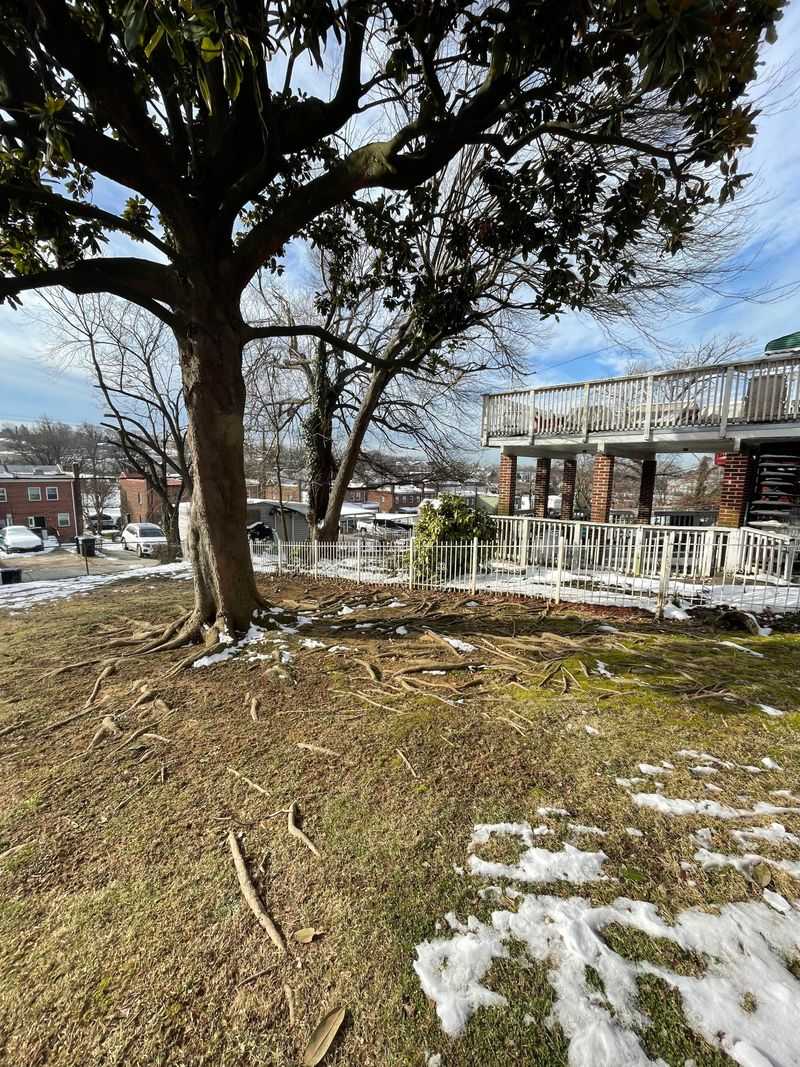
Those glossy leaves might look beautiful in Southern Living magazine, but they create a year-round cleanup nightmare when planted beside driveways. The massive surface roots eventually crack concrete, while the sticky seedpods can stain your vehicle’s paint when they fall.
With Georgia’s humidity, these fallen leaves become slippery hazards during our frequent rain showers. I’ve watched neighbors spend countless weekends raking instead of relaxing.
Sweetbay magnolias offer similar elegant white blooms but with a more manageable size and less aggressive root system. They thrive in Georgia’s climate while keeping your driveway intact and cleanup minimal.
2. Water Oak
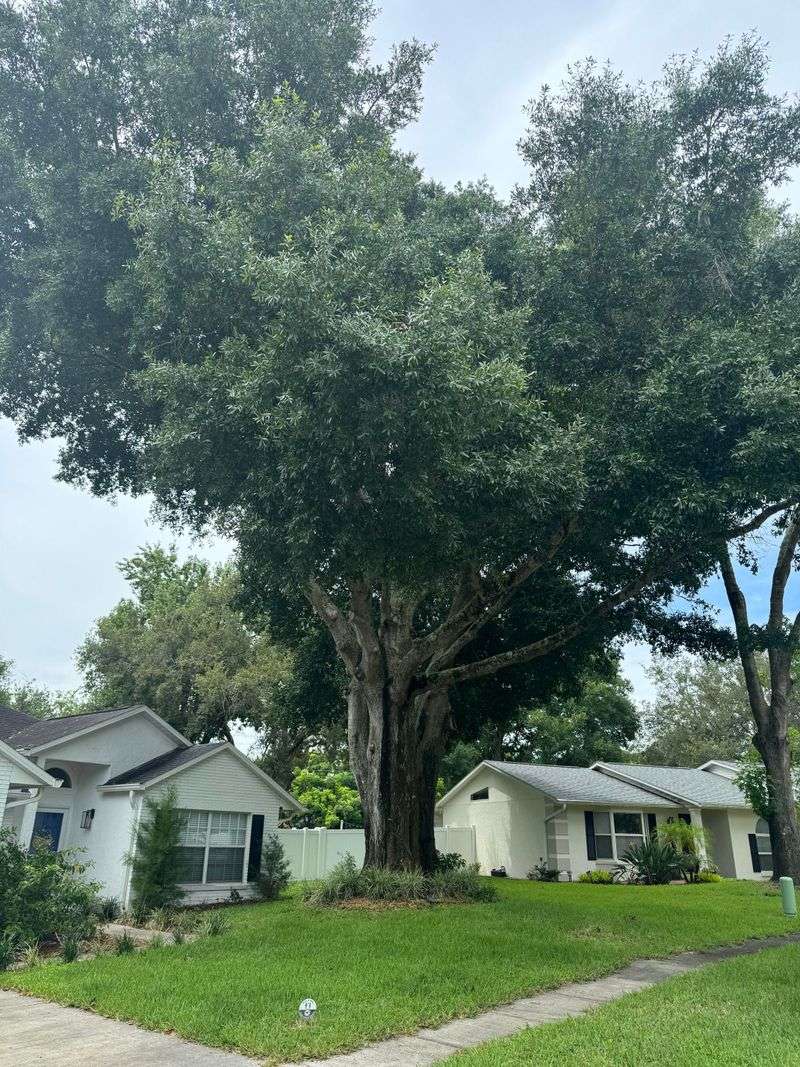
Fast-growing but short-lived, water oaks drop branches constantly during Georgia’s summer storms. Their shallow roots seek out water sources—including the area beneath your driveway—eventually causing expensive upheaval and cracking.
My Athens neighbor spent nearly $3,000 repairing his driveway after just 15 years with water oaks nearby. These trees also attract countless acorn-hunting squirrels that may decide your car is a dining table.
White oaks grow more slowly but develop deeper roots that won’t disrupt your driveway. They’re naturally adapted to Georgia’s conditions and provide better long-term shade without the constant maintenance headaches.
3. Silver Maple
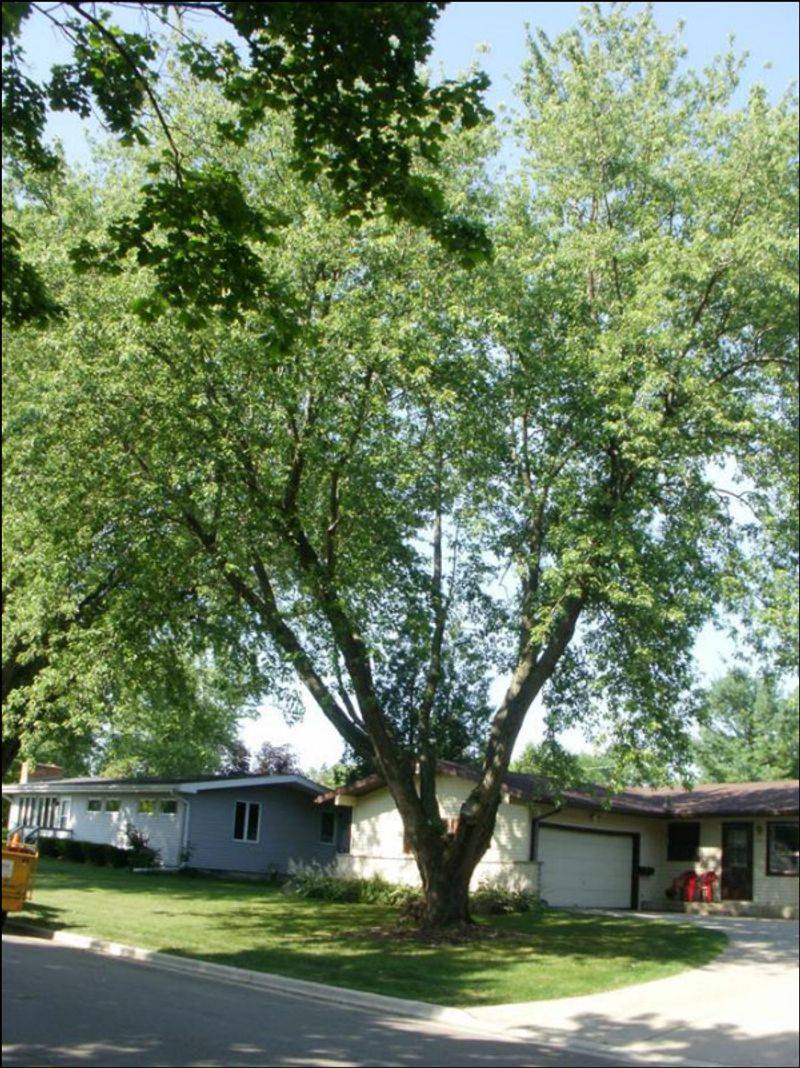
Silver maples might seem perfect with their quick growth, but Georgia homeowners quickly discover their aggressive surface roots. These notorious concrete-crackers can lift a driveway in under a decade, especially in our clay-heavy Georgia soil.
During fall, their helicopter seeds clog gutters and sprout everywhere—including driveway cracks. Weak wood structure means storm damage is practically guaranteed during our severe weather seasons.
Trident maples offer beautiful fall color without the destructive habits. Their moderate size and well-behaved root systems make them ideal driveway companions throughout Georgia, from the mountains to the coastal plain.
4. Bradford Pear
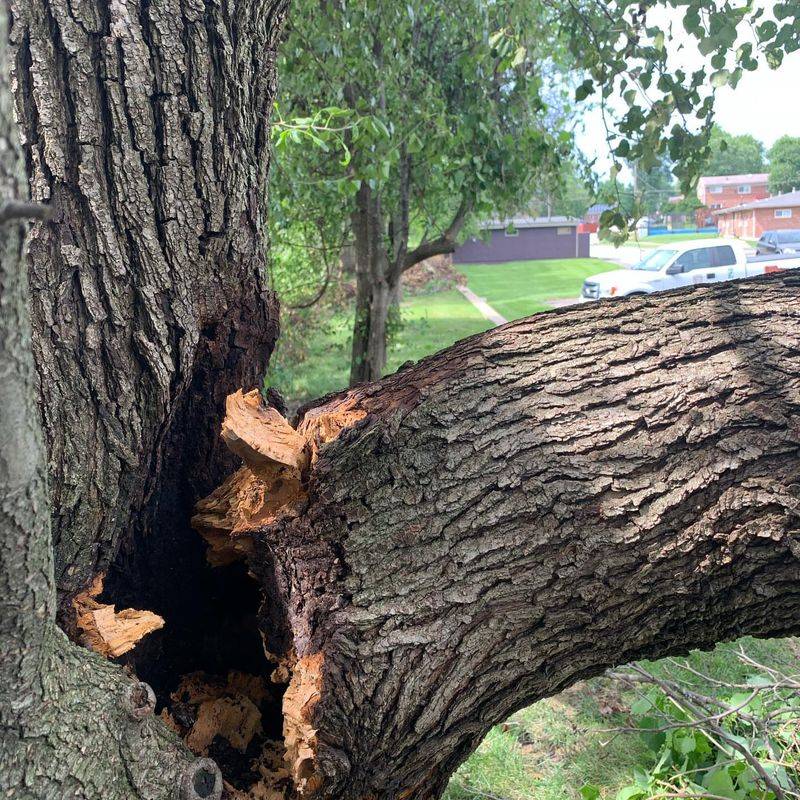
Once the darling of suburban Georgia, Bradford pears have fallen from grace for good reason. Their weak branch structure means they often split during our spring storms, potentially damaging vehicles parked in driveways below.
Having removed three from my own Marietta property, I can attest they’re now considered invasive throughout the state. Their thorny offspring crowd out native plants and create maintenance nightmares for years.
Georgia native serviceberry offers similar spring flowers but with edible berries that attract birds rather than creating mess. Its naturally graceful form requires minimal pruning and poses no threat to your driveway’s structural integrity.
5. Sweetgum
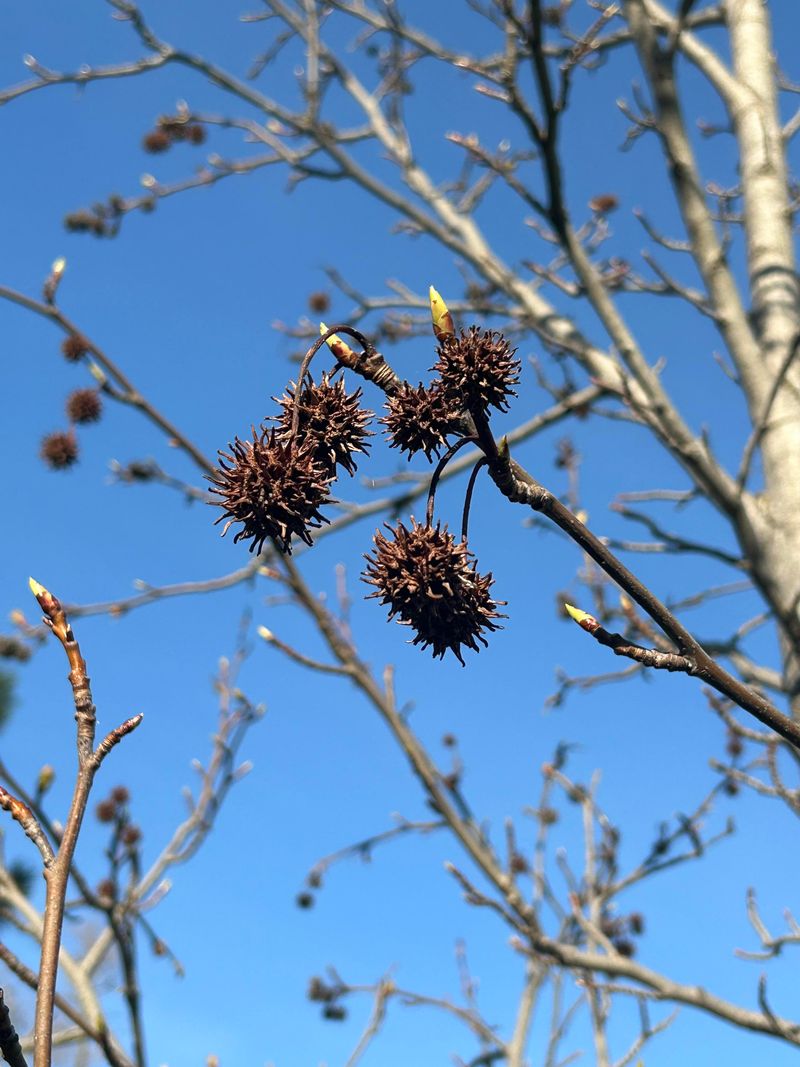
Ankle-twisting spiky balls make sweetgums the nemesis of barefoot Georgians statewide. These nuisance seedpods create hazards when they roll onto driveways, potentially causing falls or bicycle accidents.
Georgia’s freeze-thaw cycles make matters worse, as trapped moisture beneath fallen sweetgum balls can accelerate concrete deterioration. I’ve spent countless hours with a special rolling picker-upper just to keep my driveway navigable.
American hornbeam (also called musclewood) offers similar shade with beautiful fluted bark that adds winter interest. It drops no messy fruits and develops a non-invasive root system perfect for planting near Georgia driveways.
6. Leyland Cypress
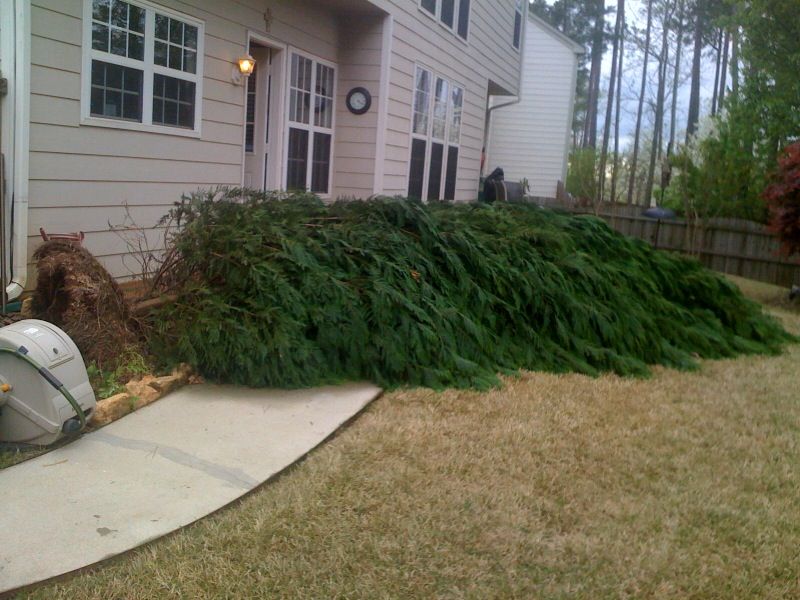
Many Georgia homeowners plant Leyland cypress for quick privacy without realizing these trees become massive problems. Their shallow roots compete with driveway foundations for water, while their excessive height creates dangerous falling hazards during ice storms.
Having seen entire rows topple in Forsyth County after heavy rains, I can confirm their root systems simply can’t support their rapid growth in our soil. Disease problems are increasingly common throughout Georgia.
Eastern red cedar provides similar evergreen screening with native hardiness and deeper roots. Its compact form stays manageable near driveways, and its berries attract cedar waxwings and other colorful Georgia birds.
7. Pecan
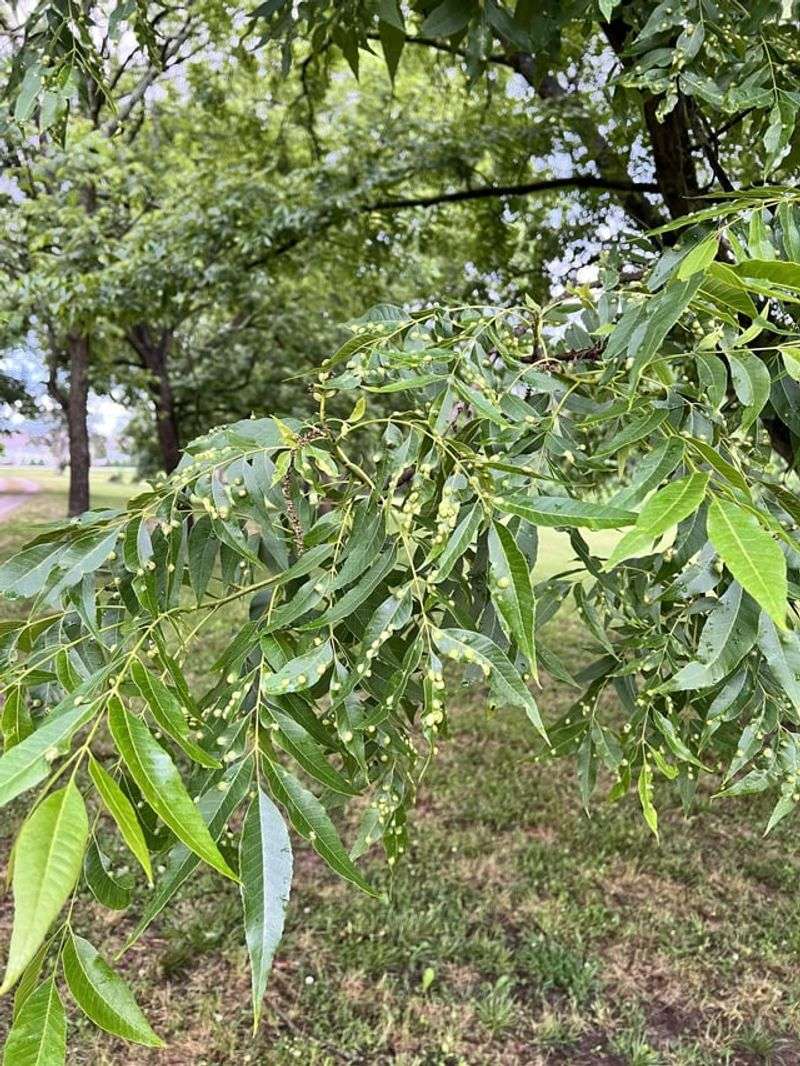
Georgia’s famous pecan trees belong in orchards, not beside driveways. Their massive nuts create dents when they fall on vehicles, while husks stain concrete with tannins that are nearly impossible to remove.
Having grown up with a pecan tree overhanging our family driveway in Macon, I recall the constant battle against squirrels who would drop partially eaten nuts on our cars. The trees also attract countless stink bugs in late summer.
Chinese pistache offers similarly beautiful fall color without the mess. Its deep roots won’t disturb your driveway, and its drought tolerance once established makes it perfect for Georgia’s increasingly hot summers.
8. River Birch
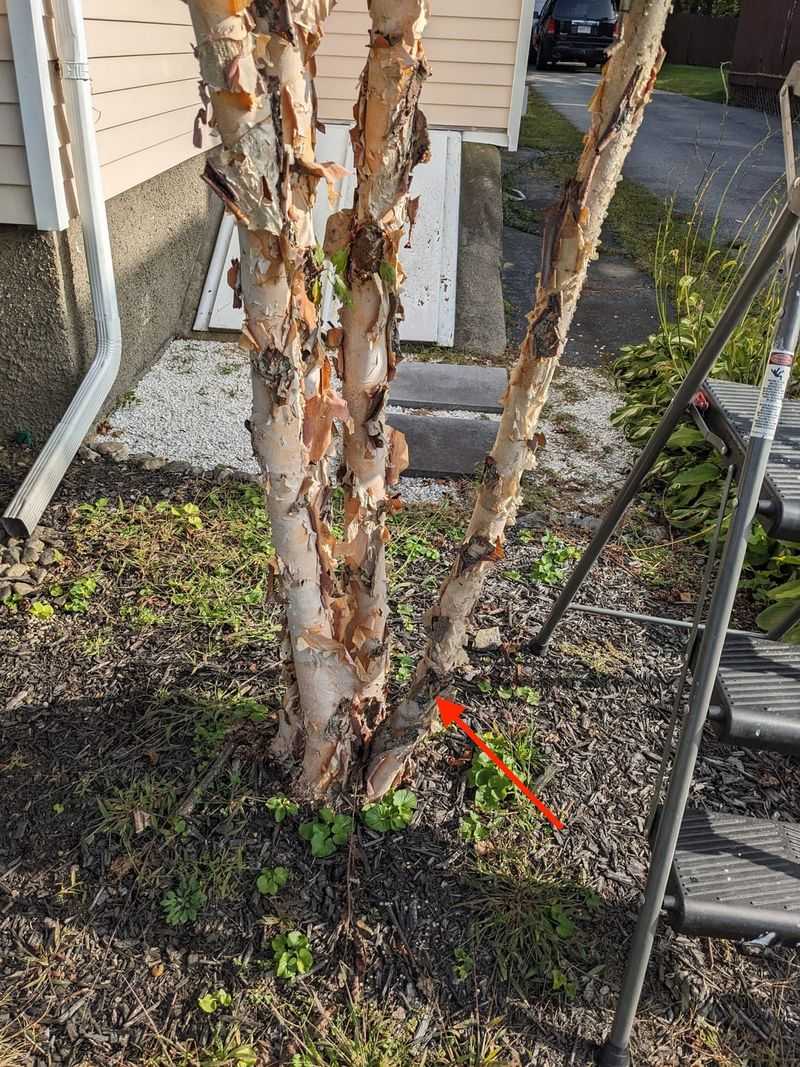
River birches look charming but cause major headaches near Georgia driveways. Their thirsty surface roots aggressively seek moisture, often lifting concrete as they grow toward water sources beneath your driveway.
After the 2007 drought, my neighbor’s river birch roots actually cracked her water line while searching for moisture. The constant leaf and twig drop creates year-round cleanup that’s particularly frustrating during Georgia’s long fall season.
Single-trunk Heritage birch varieties offer similar attractive peeling bark with deeper, less invasive roots. Their more contained growth habit makes them suitable companions for driveways throughout Georgia’s diverse growing regions.
9. Chinese Tallow
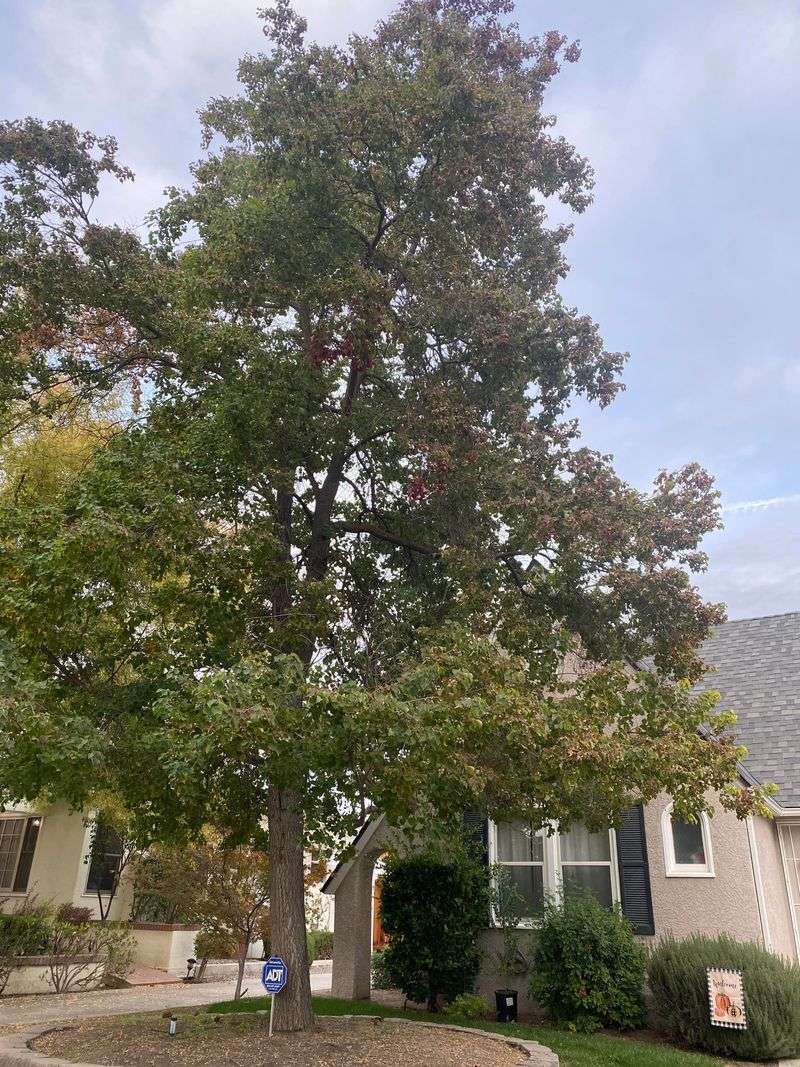
Known as popcorn trees, these invasive menaces drop sticky seeds that adhere to car tires, spreading throughout Georgia neighborhoods. Their shallow roots eventually buckle driveways, while fallen seeds create slippery conditions that have caused many falls.
During my years in coastal Georgia, I watched these trees take over entire neighborhoods. Their colorful fall display isn’t worth the headache of constantly scraping seeds off your shoes before entering your home.
Native fringe trees offer more beautiful spring flowers with none of the invasive tendencies. Their compact size works perfectly alongside driveways, and their non-aggressive roots won’t damage your concrete investment.
10. Black Walnut
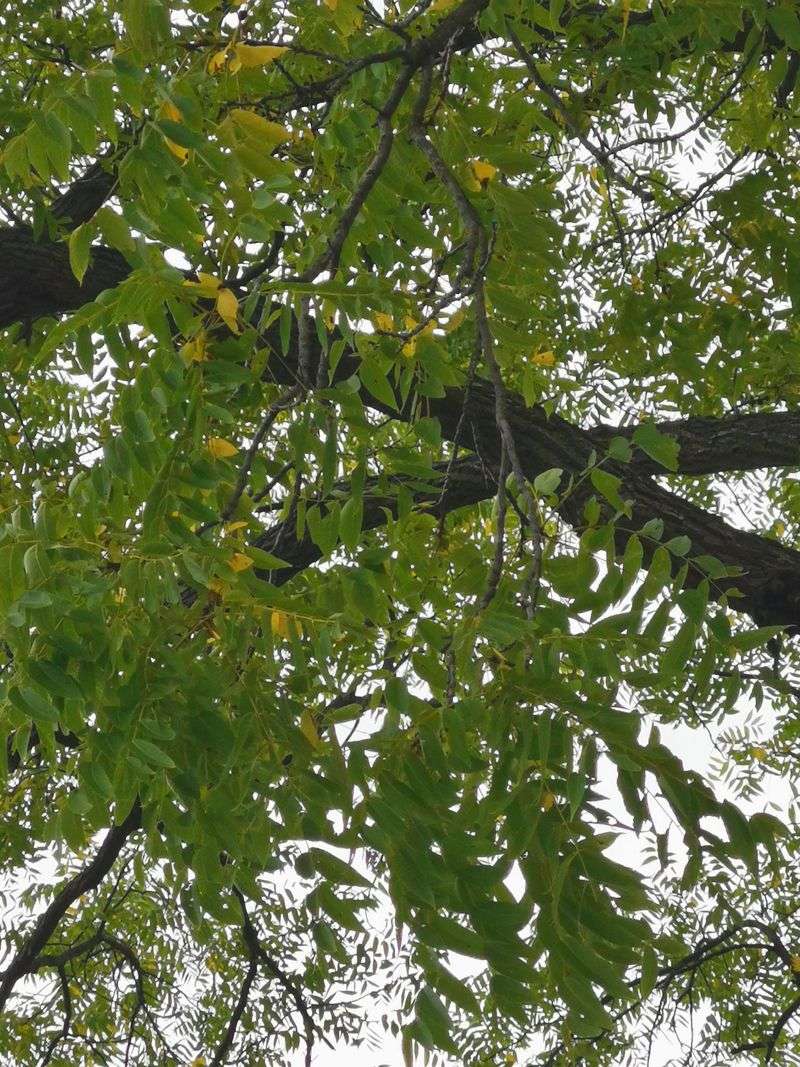
Falling walnuts become dangerous projectiles during Georgia’s gusty fall weather. These heavy nuts can dent vehicles and create tripping hazards when they roll across driveways, not to mention the permanent stains from their husks.
Black walnuts also release juglone, a natural chemical that prevents many other plants from growing nearby. My colleague in north Georgia had to replace her entire driveway after a mature walnut’s roots caused extensive cracking.
Kentucky coffeetrees provide similar shade with interesting winter bark but produce much smaller, less problematic seedpods. Their deep roots won’t interfere with your driveway, making them excellent long-term investments for Georgia landscapes.
11. Willow Oak
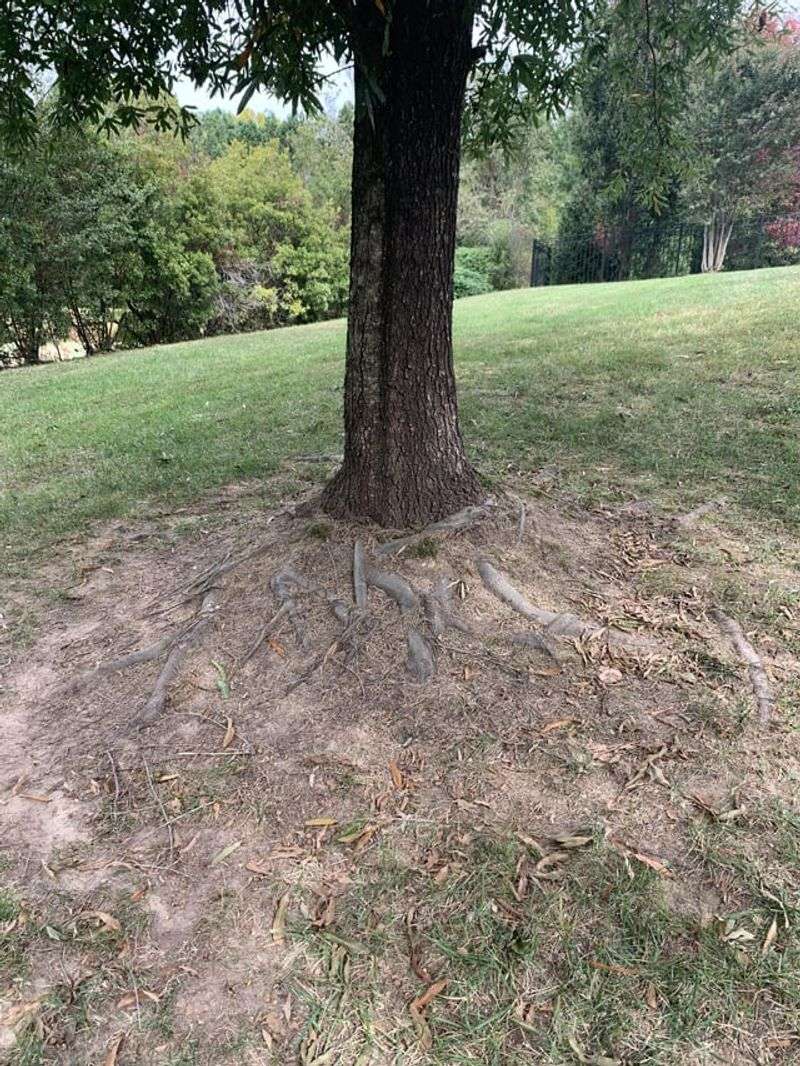
Willow oaks drop thousands of small acorns that create slippery conditions on Georgia driveways. These tiny nuts roll underfoot and can cause falls, especially dangerous for elderly residents during our humid mornings when dew makes them even slicker.
The shallow root systems eventually reach toward your driveway, causing upheaval that’s particularly problematic in Georgia’s expansive clay soils. I’ve watched these trees lift sections of my cousin’s driveway in Savannah by several inches.
Overcup oaks produce fewer, larger acorns that are easier to rake and less likely to create hazards. Their deeper root systems are better behaved around driveways while still providing the magnificent shade Georgia homeowners desire.
12. Mimosa
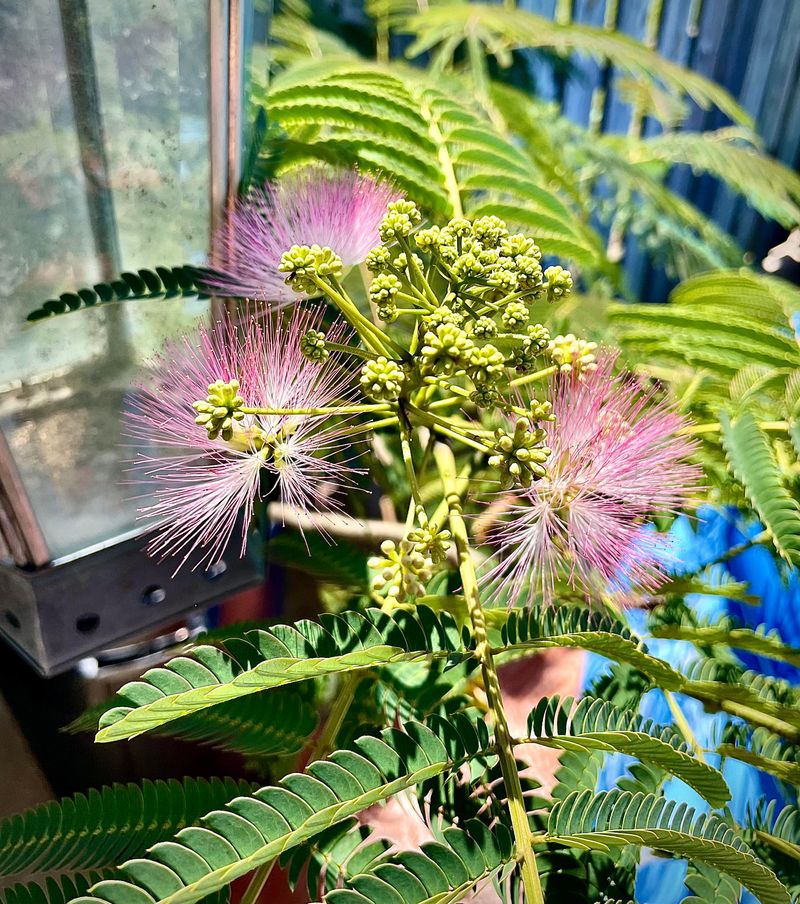
Mimosas might offer pretty pink flowers, but they create year-round messes on Georgia driveways. Their seedpods germinate in the smallest cracks, while their brittle branches snap during our summer thunderstorms, potentially damaging parked vehicles.
After dealing with hundreds of seedlings in my driveway cracks each spring, I finally removed the mimosa from my Atlanta yard. These short-lived trees are now considered invasive throughout Georgia.
Eastern redbuds provide even more spectacular spring color with none of the invasive tendencies. Their smaller stature and well-behaved root systems make them perfect companions for Georgia driveways from the mountains to the coast.
13. Catalpa
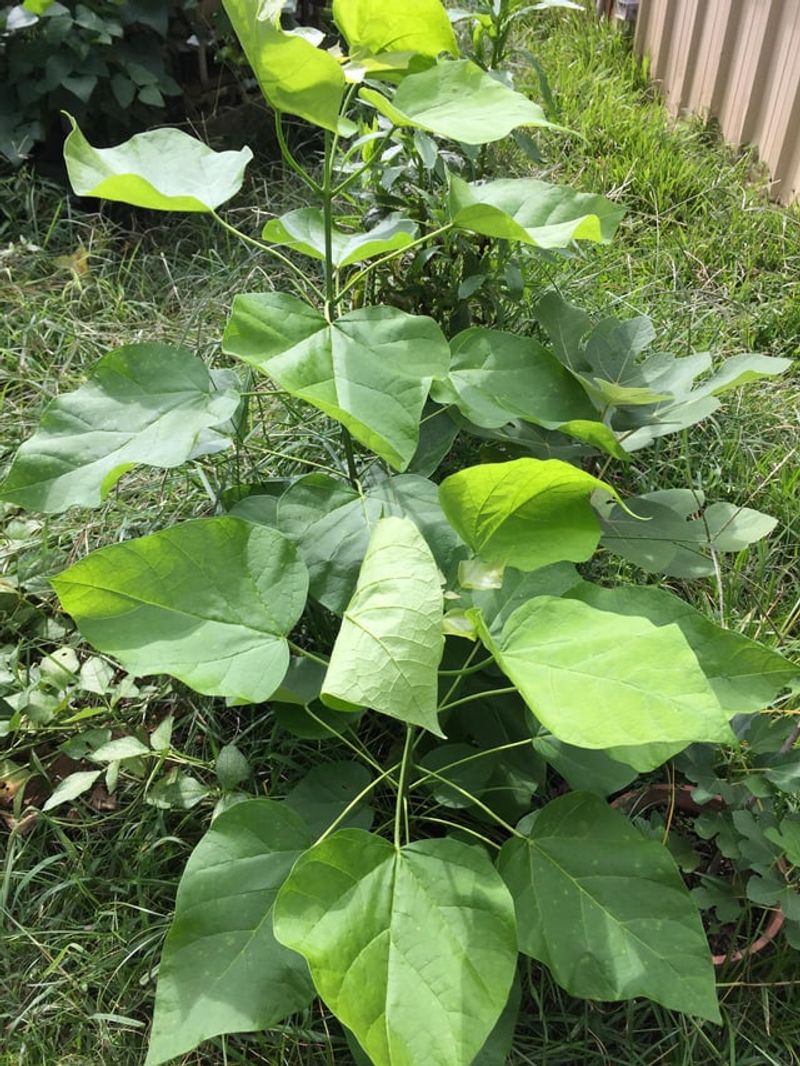
Catalpas drop enormous bean-like seedpods that create tripping hazards and stain concrete driveways throughout Georgia. Their massive heart-shaped leaves clog drainage systems during our heavy fall rains, potentially causing water backup and erosion around driveways.
Having grown up with a catalpa near our driveway in Columbus, I remember the constant barrage of frass (caterpillar droppings) that rained down on our cars each summer, requiring frequent washing to prevent paint damage.
Japanese zelkovas offer similar shade with a fraction of the mess. Their vase-shaped canopy allows good visibility for backing out of driveways, while their minimal fruit drop keeps your concrete clean throughout Georgia’s long growing season.
14. Mulberry
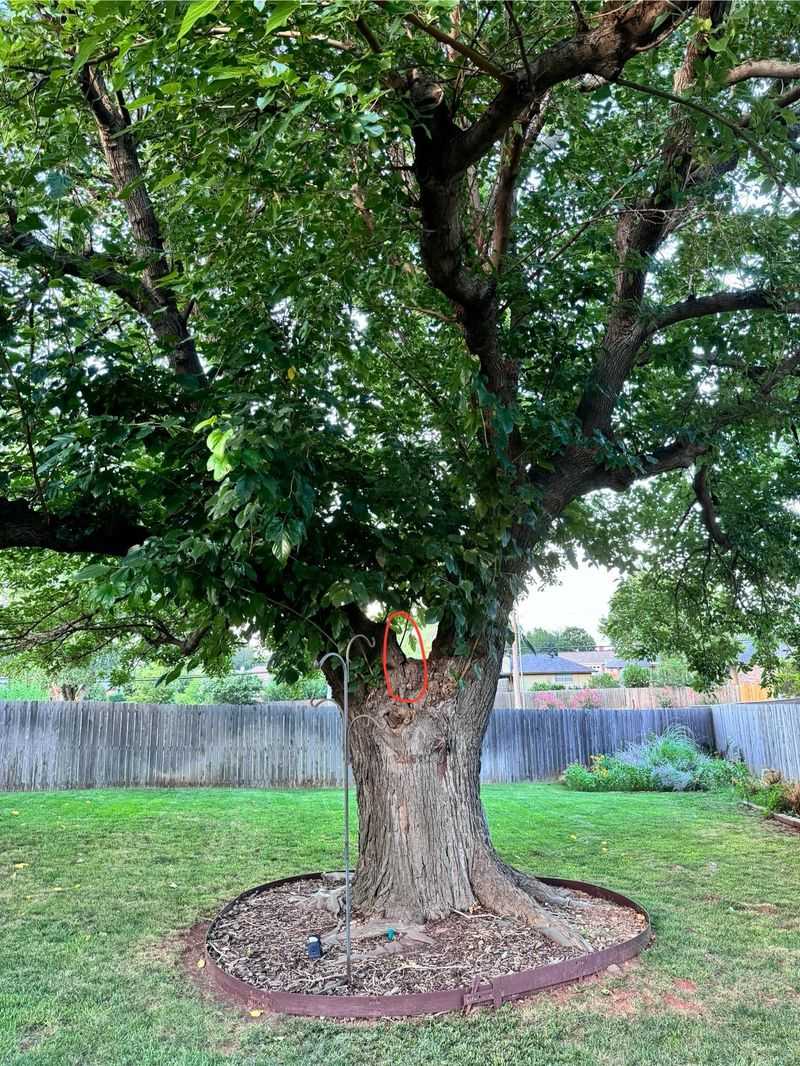
Mulberry fruits create purple stains on concrete that become nearly permanent features of Georgia driveways. Birds eating these berries create additional messes on vehicles parked below, requiring frequent washing during the long fruiting season.
My neighbor’s white car looked perpetually tie-dyed after just one season parked under her mulberry tree in Decatur. The shallow roots eventually caused significant driveway damage that required expensive repairs.
Serviceberry (Amelanchier) offers smaller, less messy berries that birds quickly harvest before they can fall. Its multi-season interest includes spring flowers, summer berries, fall color and attractive bark—all without threatening your Georgia driveway’s structural integrity.
15. American Sycamore
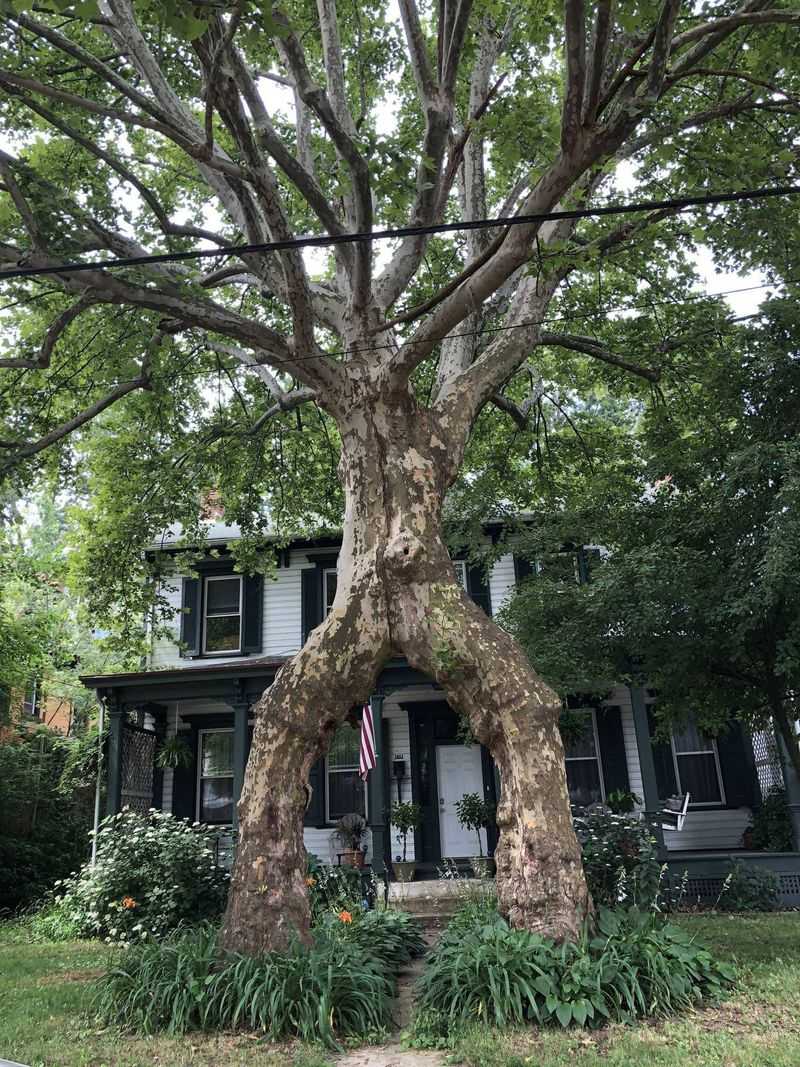
Sycamores shed enormous amounts of bark, leaves, and seedballs that will keep your driveway perpetually messy throughout Georgia’s long growing season. Their aggressive surface roots eventually buckle concrete, particularly in our moisture-fluctuating clay soils.
During fall and winter cleanups at my previous home near Athens, I could fill multiple yard waste bags weekly just from sycamore debris. Their constant shedding creates slipping hazards after Georgia’s frequent rain showers.
American yellowwood offers similar dappled shade with beautiful spring flower chains and golden fall color. Its well-behaved root system and minimal debris make it an excellent alternative that won’t damage your driveway or create constant cleanup chores.
16. Pine Trees
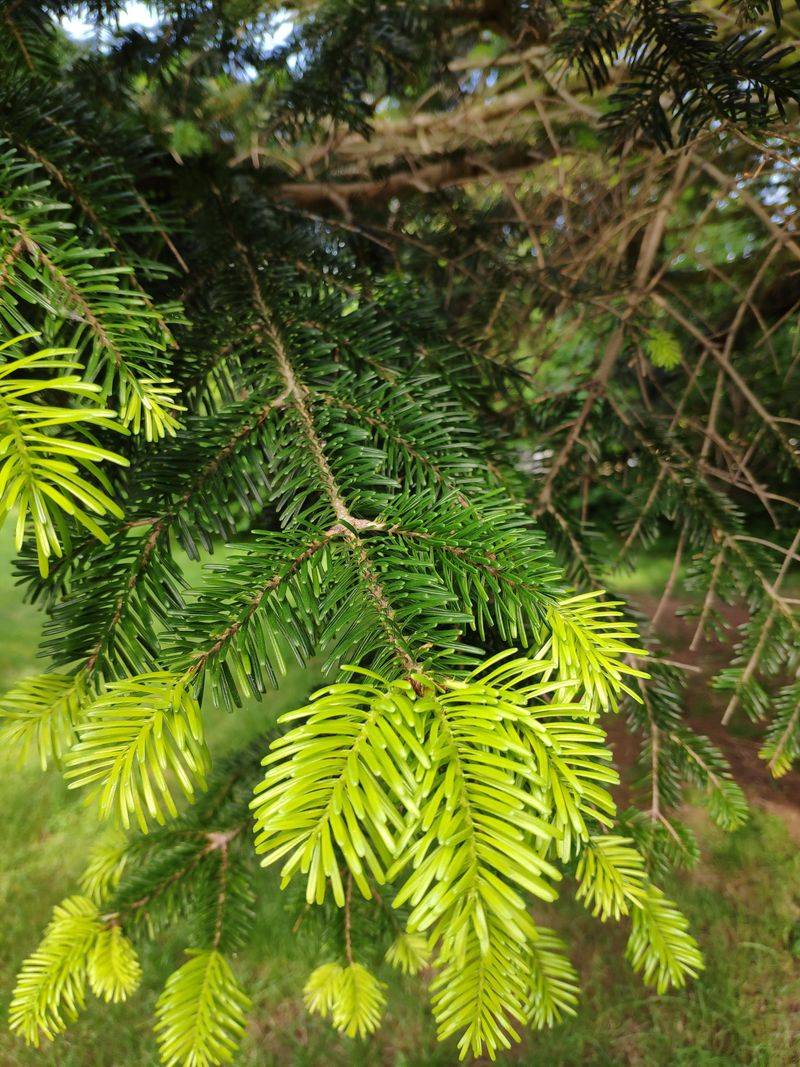
Georgia’s ubiquitous pines create year-round messes with constantly dropping needles, pollen, and sticky sap that damages vehicle paint. Their shallow roots seek surface water, eventually disturbing driveway foundations, especially during our severe summer droughts.
Having lived with loblolly pines near my driveway in middle Georgia, I’ve experienced the frustration of pine pollen coating everything yellow each spring. The falling branches during ice storms create genuine safety hazards for cars and people.
Eastern red cedar provides similar evergreen presence with none of the constant debris. Its deeper roots stay clear of driveways, while its dense growth habit creates effective screening without the hazards associated with our native pines.
17. Sweet Gum
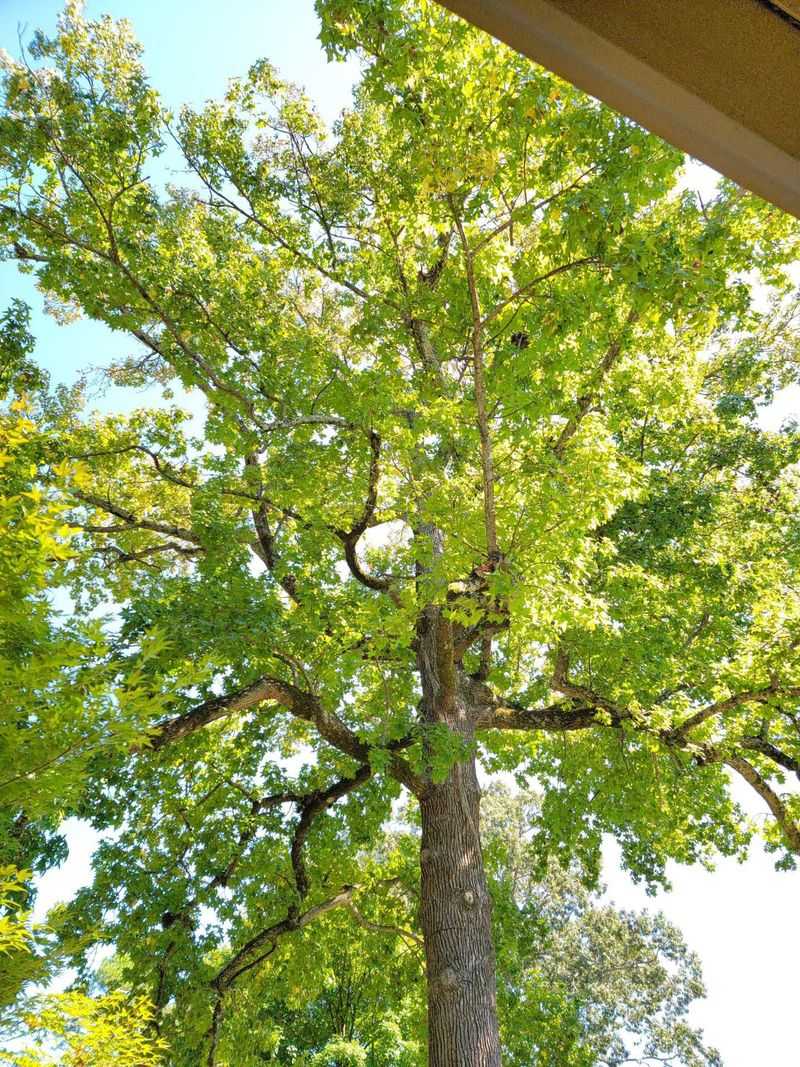
Beyond the infamous spiky balls, sweetgums develop aggressive surface roots that eventually destroy Georgia driveways. Their extensive root systems seek water beneath concrete, creating pressure that results in expensive cracking and upheaval.
After removing a sweetgum from my Alpharetta property, we discovered roots had extended nearly 40 feet to reach beneath our driveway. The resulting repair bill convinced me never to plant these trees near hardscapes again.
Male ginkgo trees offer similarly spectacular golden fall color without messy fruits or aggressive roots. Their pollution tolerance makes them excellent choices for Georgia driveways, especially in more urban areas where air quality concerns exist.
18. Red Maple
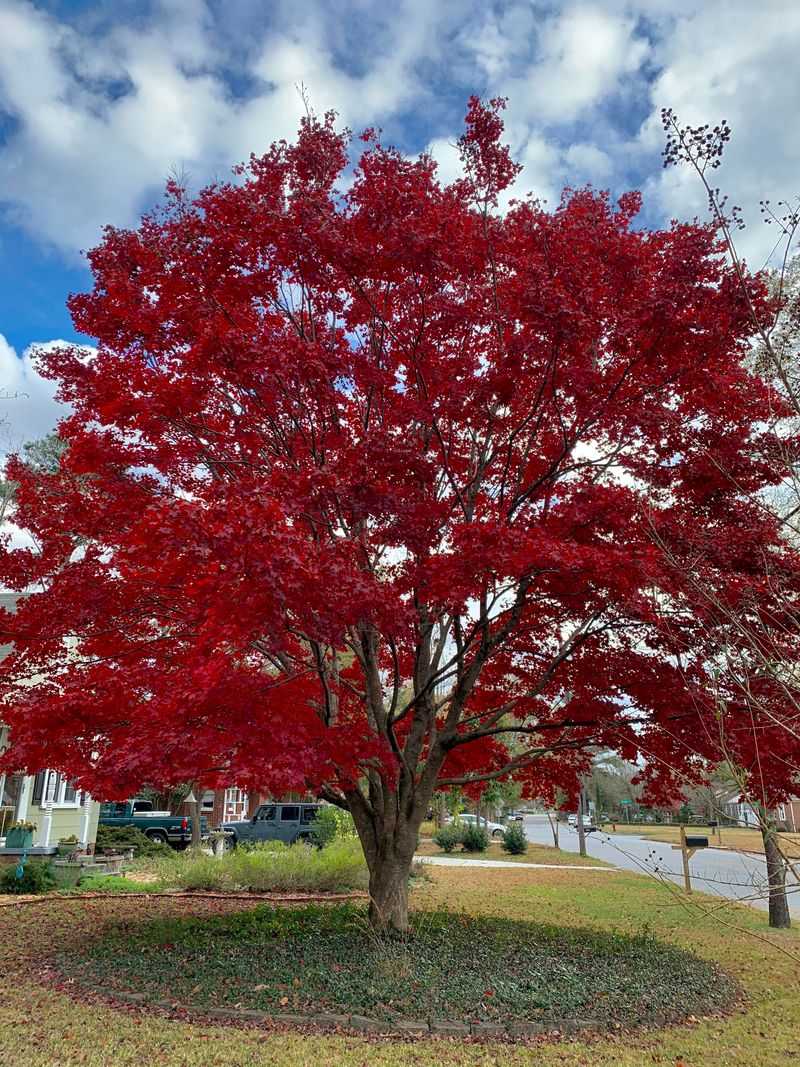
Red maples grow quickly but develop problematic surface roots that eventually damage Georgia driveways. Their dense canopies drop prodigious amounts of helicopters, flowers, and leaves that stain concrete and create slipping hazards after rain.
Working with several Roswell clients, I’ve seen red maple roots lift driveway sections by several inches, particularly in areas with our typical heavy clay soils. The resulting tripping hazards created liability concerns for homeowners.
Amur maples offer similar brilliant fall color in a smaller package with non-aggressive roots. Their compact size makes them perfect for Georgia driveways, providing beauty without the structural damage that their larger relatives eventually cause.

